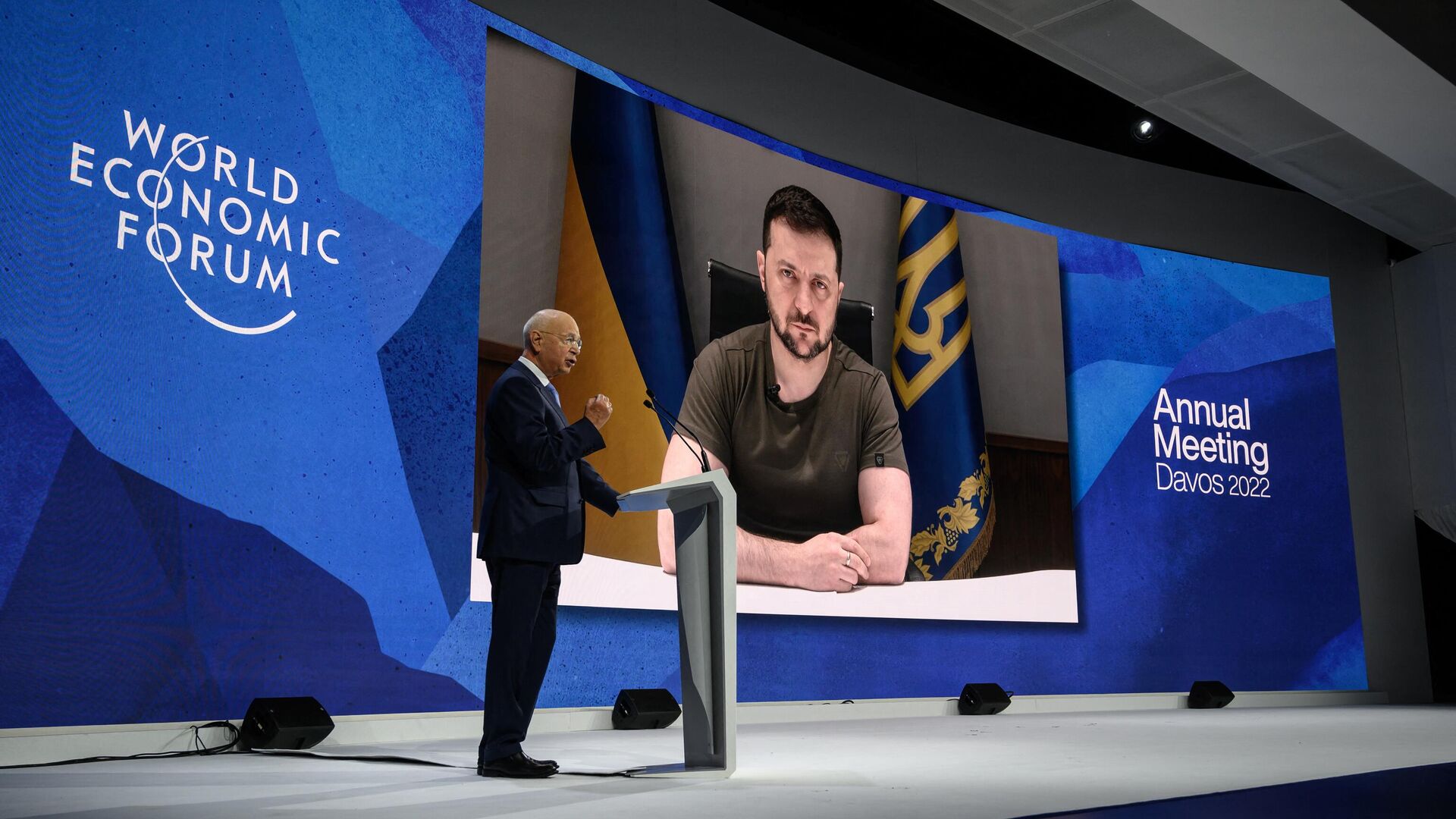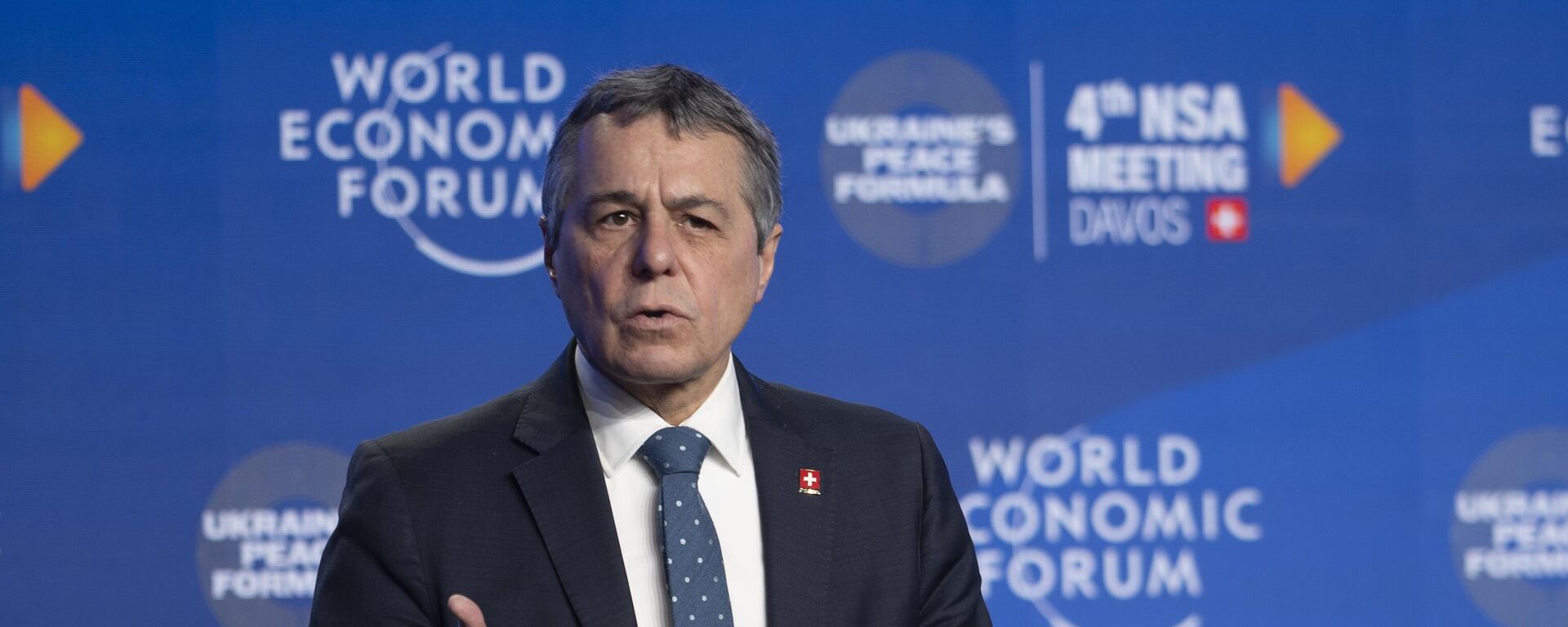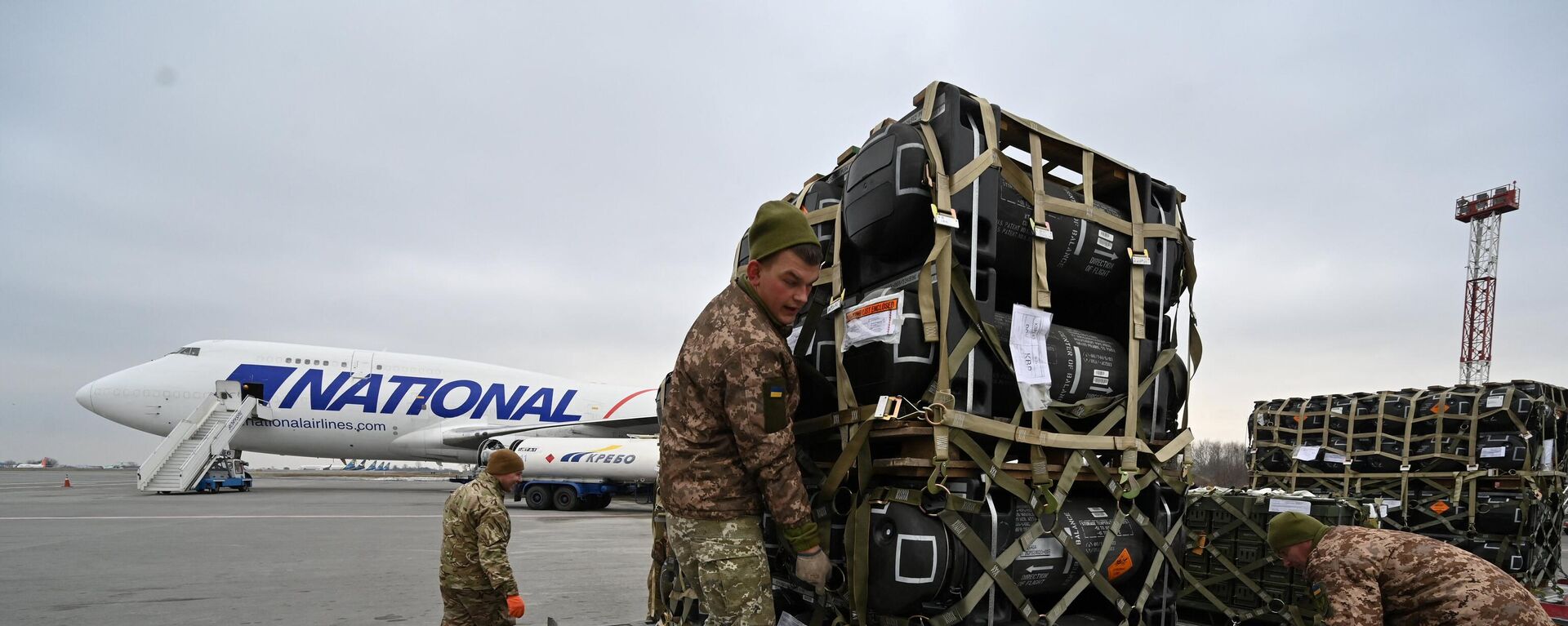Resolution of Ukraine Crisis to Remain Elusive Until NATO Pressures Kiev to Engage in Talks: Expert
12:45 15.01.2024 (Updated: 14:09 15.01.2024)

© AFP 2024 FABRICE COFFRINI
Subscribe
On Sunday, Davos, a city in eastern Switzerland, hosted a meeting of the Western officials, who gathered to talk on the Zelensky "peace formula." According to this proposal, Russia should completely capitulate, which Moscow has firmly rejected. To shed light on the issue, Sputnik sought the expertise of a European political economist.
Sunday’s meeting of Western national security officials in Davos on Ukraine’s 'peace proposal' ended "with no clear path forward," with British business media reporting that the only "achievement" of the talks was a "more diverse family photo than last time," including representatives from countries with close relations with Russia such as Brazil and South Africa.
"There was no progress on an actual peace deal. That would be impossible without Russia, and Russia wasn’t invited. But that’s not the point," the Financial Times assured in a chirpy summary of the meeting, saying it was meant to "remind" other countries that "Ukraine, not Russia, is the one trying to talk about peace."
Setting aside that this disingenuous claim ignores repeated attempts by Moscow to nip the Ukrainian crisis in the bud in 2014, prevent it from escalating into a full-fledged NATO-Russia proxy war in 2022, and to signal readiness to talk in the close to two years since, it’s important to point out that the Zelensky ‘peace formula’ doesn’t even pretend to seek to include Russia in the conversation, going so far as to attempt to hold its meetings in secret.
And perhaps with good reason. Zelensky’s formula demands that Russia give up Crimea, the Donbass, Zaporozhye and Kherson, pay Ukraine reparations, subject its officials and military personnel to war tribunals, and make other one-sided concessions which look less like a peace deal and more like demands against a capitulating power. Moscow has predictably dismissed the proposal, with Foreign Minister Sergei Lavrov recently calling them a "figment of a sick imagination."
Swiss Foreign Minister Ignazio Cassis admitted that a peace process could not be started without Russia’s participation.
Zelensky’s Magic Trick: Turning the Possible Into the Unrealistic
"Peace is no more an impossible or unspeakable word, and the idea of negotiation is again on the table," however, "Ukraine’s position is still not realistic," Jacque Sapir, director of studies at the Paris-based School for Advanced Studies in the Social Sciences, told Sputnik.
"In the mind of Kiev’s rulers, peace is to come through military victory and a reconquest by Ukrainian Armed Forces of the four oblasts (Kherson, Zaporozhye, Donetsk and Luhansk) and of Crimea. This is the content of the so-called 'ten point plan'," Sapir explained, highlighting the Zelensky proposal's keystone demand.
The analyst likens Kiev’s poker face approach to an "opening move," and believes the Zelensky regime may be willing to pursue more "realistic" options, including the idea of having Russia actually take part in peace negotiations, particularly "as the military situation is now deteriorating for Kiev."
"Ukraine’s leaders know very well that they are not in a position to aim at complete, or even partial, victory against Russia. But they have so much talked of a 'victory' that they need to find a way to explain to their own population (and to NATO countries) why and how they will agree on a compromise," Sapir said.
If and when talks proceed, and Kiev’s position softens, Sapir suggested that it would be interesting to see "how Ukrainian leaders will abandon their 10 points without saying that they are reneging on them."
"In the end, Ukrainian rulers have to understand that beginning a real negotiation process is to imply the deletion of most if not all the so-called 10 points," the observer noted.
Kiev’s sponsors have a number of tools in their tool belt they could use to "encourage" Kiev to sit down at the table if for some reason they chose to do so, Sapir said, from softening terms for potential membership in the European Union, to having NATO suspend further arms deliveries until negotiations begin, or even partially lifting sanctions against Moscow.
"If the current Ukrainian position makes negotiations quite impossible, another problem is also how to convince Russia to come to the negotiation table," Sapir said. "Russia would probably want a kind of peace treaty ensuring at least neutralization and partial disarmament of Ukraine. Why Russia will come to the negotiation table with the knowledge that Ukraine used negotiations to gain time in 2022?"



